The RIPE NCC wishes to thank all members of the RIPE Atlas community for their participation and support. This includes RIPE Atlas probe hosts, anchor hosts, sponsoring organisations, ambassadors, users and all RIPE NCC members who support this activity. Below we describe the major achievements and changes implemented in 2013.
RIPE Atlas enjoyed a very successful year in 2013. We continued growing in terms of the number of distributed probes, users, and measurement results based on an ever-growing data collection network.
This was also the year in which our Chief Information Officer explained the RIPE NCC's plans to make RIPE Atlas the main data collection system for the RIPE NCC. You can learn more about those plans in this RIPE Labs article .
At the end of 2013, we also made a proposal to you, our users, to make the measurements and probe data more public. You can read more about that proposal in this RIPE Labs article . (As of publication, this is still an open issue and the discussion is ongoing on the MAT Working Group Mailing List.)
Finally, another big development for the year was RIPE Atlas anchors becoming a production service in October 2013. Find out more about RIPE Atlas anchors .
2013 Stats
RIPE Atlas continues to expand its network. At the end of 2013, there were:
- 9,700 users
- 3,400 of these users are RIPE NCC members
- 4,550 active probes (twice the number we had at the end of 2012!)
- out of this 2,050 IPv6-enabled probes
- 200 built-in measurements
- each built-in measurement involves all (IPv4 or IPv6) probes
- 404,000 user-defined measurements!
- involving from one to all the probes
- A total of 3,500 probes were distributed in 2013:
- 2,000 were shipped to the volunteers who applied for probes,
- and 1,500 were carried and delivered by ambassadors!
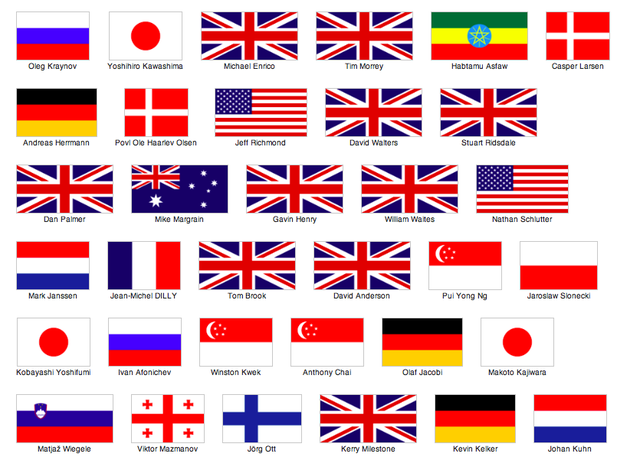
Features For RIPE NCC Members
In 2013, we developed a number of services and features specially targeted to the RIPE NCC membership.
In January we announced direct access to member-specific features via the LIR Portal . Member LIRs can:
- Test their IPv6 reachability with traceroute measurements from 1,000 probes
- Receive 1,000,000 additional credits to spend on their own user-defined measurements
- Apply for a RIPE Atlas probe via a streamlined process in the LIR Portal
Some other developments included:
Group Access Management
Many RIPE NCC members wanted to be able to "share" their probe with colleagues in their LIR. Probe hosts can now mark a probe as "shared within my LIR".
Quick Look Measurements
RIPE Atlas Quick Look measurements allow RIPE NCC members to get a virtually instantaneous snapshot of how the RIPE Atlas network sees a target of their choice – whether an IPv4 or IPv6 address or hostname – anywhere in the world. We started with ping and traceroute and we later expanded to DNS measurements.
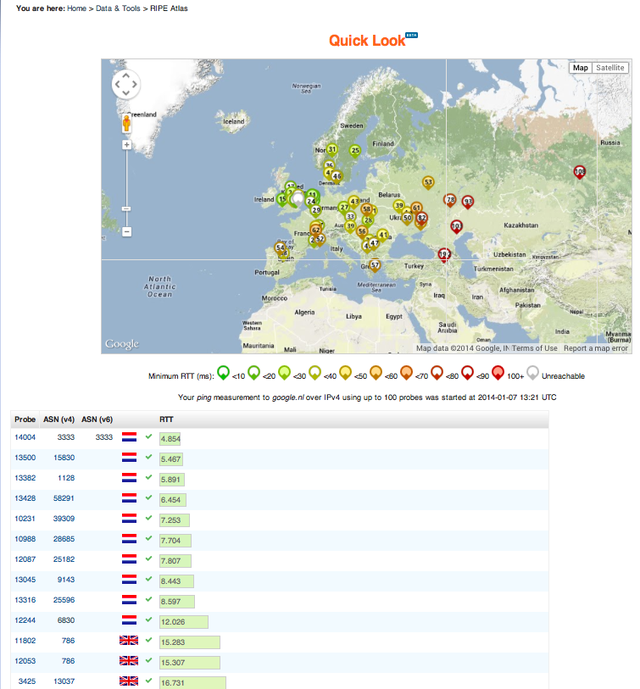
Quick Look measurements
Features for Probe Hosts
New type of probe
The small black probes have been replaced with a new device: a reconfigured TP-Link (model TL-MR 3020). Although these probes look different, their functionality remains the same as previous probe versions. These new probes allowed us to reconfigure off-the-shelf devices rather than custom order devices.
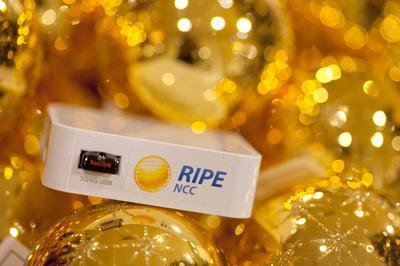
New Dashboard View
As part of the enhancement of the RIPE Atlas website, we released in April a new dashboard view.
When you're logged in, the new dashboard view gives you a comprehensive overview, highlighting:
- The status of your probes
- The status of your latest measurements
- A new visualisation of your credit balance
- An overview of your API keys
More detailed pages can be found under My Atlas > My Probes/My Measurements.
You can learn more about the new dashboard view in this RIPE Labs article .
One-off measurements
In addition to being able to schedule periodic, ongoing user-defined measurements, users were offered "one-off measurements". These allow users to quickly run a single measurement just once, and get results as quickly as possible. You can learn more in this RIPE Labs article .
New RESTful APIs
In April two new RESTful APIs were made available: one for measurements and one for probes. These allow users to perform scripted measurements and get results without using the UI manually.
More exciting graphs
The Seismograph is an interactive tool that lets users easily visualise multiple (user-defined) ping measurements. It provides users with a stacked chart and a control panel to interact with the system. Learn more . The seismograph also visualises the results of the anchoring measurements.
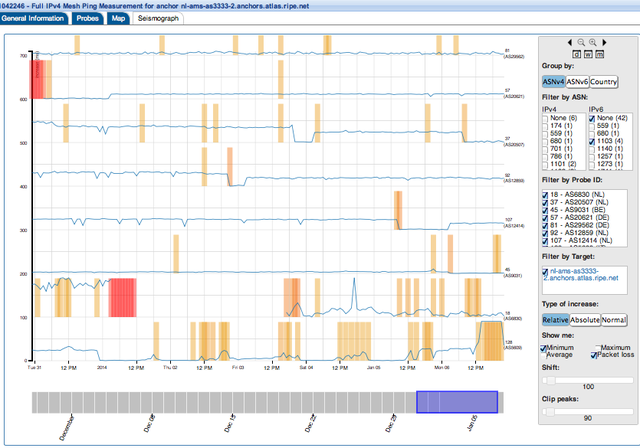
The visualisation for built-in ping measurements was based on multiple RRDs graphs (showing the last day, last week, last month and so on). They have now been replaced by one single graph which is based on the RIPEstat framework: the zoomable ping graph.
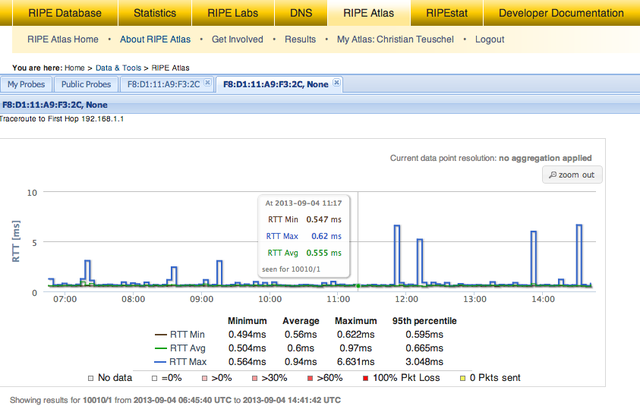
Zoomable ping graph
Benefiting the Whole Internet Community
RIPE Atlas source code published
In May we decided to release the RIPE Atlas measurement source code in order to be as transparent as possible for our RIPE Atlas users.
RIPE Atlas website enhanced
As interest in RIPE Atlas continued to grow, the RIPE Atlas website became more of a priority. We added a lot of new content and reorganised the website to make it easier to find the information you're looking for and better explain RIPE Atlas' goals and benefits to a wider audience.
New home for RIPE Atlas Roadmap
We're often asked about the status of our different projects, and while we frequently publish updates on RIPE Labs, we came up with another way to keep you updated. In April, together with other RIPE NCC services, the RIPE Atlas Roadmap was introduced: an overview of all the latest developments and future plans in one place. The roadmap has been regularly updated to reflect the new requested features by the community and the progress of the work items, from planning, to work in progress, to delivered.
RIPE Atlas anchors
At the RIPE 67 Meeting in October, we were pleased to announce that the RIPE Atlas anchors service went into production .

Since then we have received more than 50 applications for new anchors and the number of anchors online reached 29 at the end of the year! We would like to take the opportunity to thank all the pioneers who participated to the pilot that went on for most of 2013 and the new anchor hosts as the first ones to put a lot of effort into having their anchors online as soon as possible. Our goal is to reach 100 anchors by the end of 2014.
Be the first one to apply for an anchor in 2014! To recognise your service to the community, as a RIPE Atlas anchor host you will earn ten times the number of credits that a regular probe host earns, and can use these credits to perform valuable user-defined measurements about your own network. You'll also get a more detailed overview of regional traffic fluctuations within the RIPE Atlas network. And we'll add your logo to our Community page and our presentations about RIPE Atlas. Find out more about RIPE Atlas anchors .
More maps
In 2013, we added maps showing:
- Percentage of probes per country
- Locations of RIPE Atlas anchors
- Locations of the RING nodes , used as targets
- Sponsored probes (only visible to sponsors)
- Ambassador probes (only visible to ambassadors)
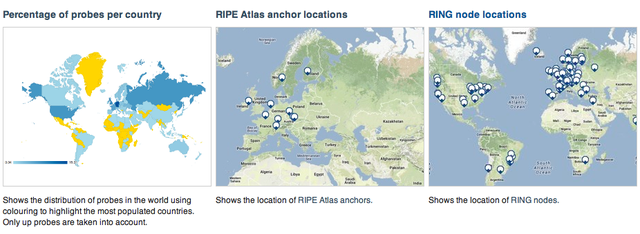
New security page
Throughout 2013, RIPE Atlas users followed responsible disclosure procedures for security reporting, and the results of security improvements are now visible on a dedicated security page .
More Community Involvement
Ambassadors
In addition to RIPE NCC presenters and trainers who promoted RIPE Atlas, in 2013 we joined forces with RIPE Atlas "ambassadors" - active community members who support RIPE Atlas by distributing probes while attending conferences, and by giving presentations about RIPE Atlas. Out of 3,500 probes distributed in total, 1,500 were distributed by 46 RIPE Atlas ambassadors. Their personal contribution made it possible to extend the RIPE Atlas network to farther parts of the world and reach wider communities. Together, we were present at more than 100 events in 2013. We are looking forward to even more cooperation in 2014!
More RIPE Atlas use cases
RIPE Atlas has been increasingly used for the research and analysis of notable network events, or to answer interesting questions about network operations. During 2013, both RIPE NCC staff and community members delivered numerous presentations and wrote many articles on the use of RIPE Atlas, such as:
- Using RIPE Atlas User Defined Measurements to Find the Most Popular Instances of a DNS Anycast Name Server
- RIPE Atlas Code for Analysis and Statistics Reporting
- RIPE Atlas Fun: Map a RIPE Atlas Anchor
We also used RIPE Atlas to analyse the effect of typhoon Haiyan on the Philippines' core Internet infrastructure.
The RIPE NCC is happy to give researchers access to the RIPE Atlas data if we believe the results of the research will benefit the Internet community.
Hands-on tutorials and presentations
Some members of the community were very active at a lot of events, giving presentations to spread awareness of RIPE Atlas. We'd especially like to thank:
- Nikolay Melnikov, Hands-on: RIPE Atlas, AIMS 2013
- Stéphane Bortzmeyer, Creating and Analysing RIPE Atlas Measurements, RIPE67 , October 2013, Athens
- Randy Bush , RIPE Atlas 101 , AfNOG 2013
RIPE Atlas sponsors
In 2013, seven new organisations supported RIPE Atlas financially and become sponsors, and we welcomed back one returning sponsor. We are extremely grateful to our RIPE Atlas sponsors!
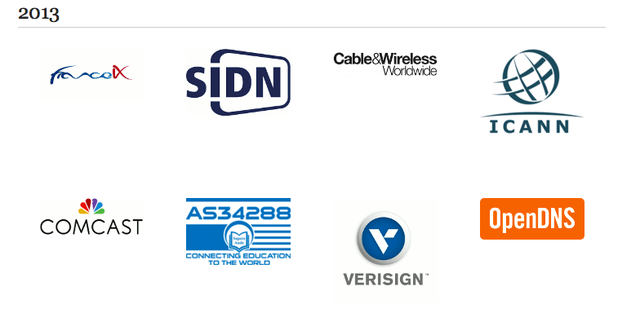
In 2014, we are going to make the sponsorship program more flexible, and integrate it more seamlessly with the ambassador program.
RIPE Atlas on GitHub
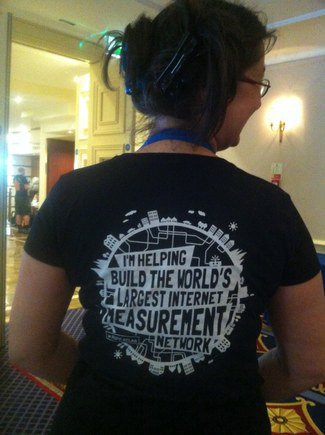
New RIPE Atlas t-shirt
The new RIPE Atlas T-shirt was presented at RIPE 66 in Dublin, where 200 were given out. During RIPE 67 in Athens we gave them out to our RIPE Atlas anchors hosts, ambassadors, and sponsors. And where next? If you have ideas for distributing our t-shirts, please let us know!
Under discussion
There is a lot of community discussion about wanted features happening on the RIPE Atlas mailing list for active users: ripe-atlas@ripe.net and MAT Working Group mailing list .
Current ongoing discussions include:
- Making the measurement data more open and public
- Enabling HTTP measurements
- How to tag the probes for easier selection
Get in touch
We look forward to hearing from you!
If you would like to give us your input or if you want to get in touch:
- Please subscribe to the RIPE Atlas mailing list for active users, which is also followed and answered by developers: ripe-atlas@ripe.net
- If you want to report a bug or problem: atlas@ripe.net
For direct feedback: mcb@ripe.net or @RIPE_Atlas on Twitter

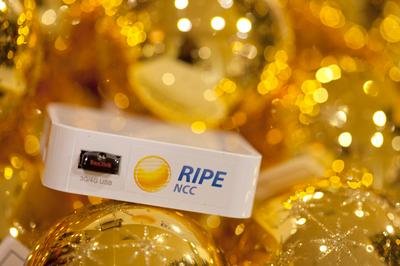
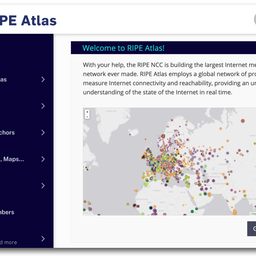
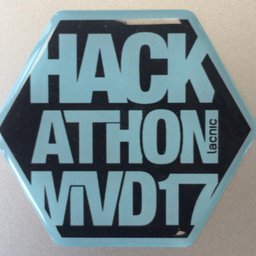
Comments 1
The comments section is closed for articles published more than a year ago. If you'd like to inform us of any issues, please contact us.
Wilfried Woeber •
A tiny bit of feedback, as an ambassador: I think this is a great idea, and actually, while the probe only became on-line in January 2014 (due to unrelated problems at the destination site), the first of these little creatures found its way to Cuba in late 2013 :-)